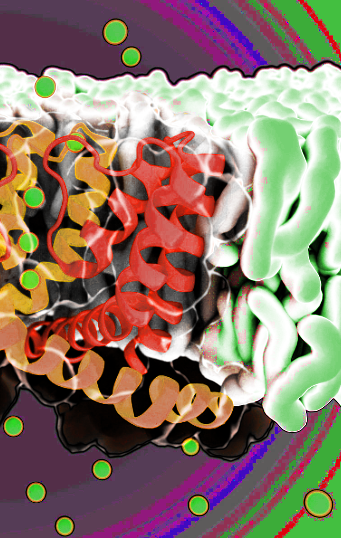Synthetic cell filters well

Inspired by the precise filtering capabilities of a living cell, an international research team has developed a synthetic membrane that is precisely tuned, in both size and chemistry, to filter lithium ions in an ultra-fast, one-directional and highly selective manner.
The team, led by Monash University, has shown that Metal-Organic Framework (MOF) channels can mimic the filtering function, or ‘ion selectivity’, of biological ion channels embedded within a cell membrane.
The technology could be used to create a new filtering technology for lithium-from-brine extraction.
“Based on this new research, we could one day have the capability to produce simple filters that will take hours to extract lithium from brine, rather than several months to years,” said Professor Huanting Wang from Monash University.
“Preliminary studies have shown that this technology has a lithium recovery rate of approximately 90 per cent - a substantial improvement on 30 per cent recovery rate achieved through the current solar evaporation process.”
Lithium-from-brine extraction is most common in the Lithium Triangle – a region of the Andes bordering Argentina, Bolivia and Chile, which holds roughly half of the world’s lithium reserves – and some sites across the USA.
With the majority of Australia’s lithium produced from the mineral spodumene, the new technique could spur on the investigation of Australia’s salt lakes for potential lithium production options.
There could be other applications too, according to Associate Professor Zhe Liu from The University of Melbourne.
“The working mechanism of the new MOF-based filtration membrane is particularly interesting, and is a delicate competition between ion partial dehydration and ion affinitive interaction with the functional groups distributed along the MOF nanochannels,” he said.
“There is significant potential of designing our MOF-based membrane systems for different types of filtration applications, including for use in lithium-from-brine extraction.”
The researchers say the strategy outlined in their latest paper will provide a clear roadmap for resource recovery and low energy water purification of different molecular species.








 Print
Print